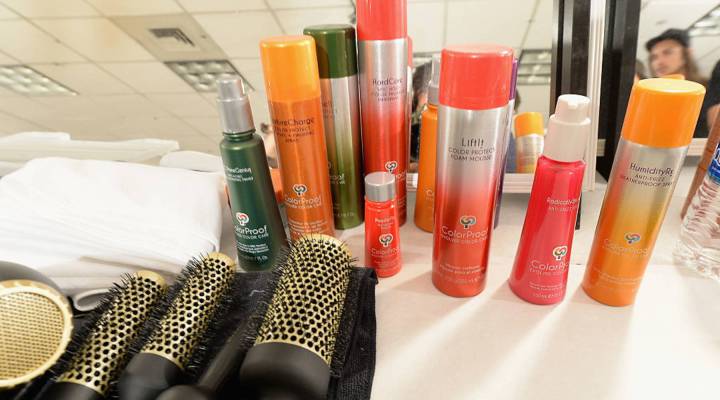
How tech is finding its way into your beauty bag

Tech has found its way into your beauty bag. Earlier this year, L’Oreal announced it’s releasing a smart $200 hairbrush, which has a built-in microphone that listens to your brushing patterns to make sure you don’t overbrush. The vibrating brush also measures the force you’re applying to the scalp. All of that connects to an app. It’s like a Fitbit for your hair.

L’Oreal’s new smartbrush is full of sensors and connects to your smartphone.
“The better the technology gets, the more we use it,” said, Jill Gilbert organized the Beauty Tech Summit at the Consumer Electronics Show in Las Vegas recently, where more than 300 companies displayed products. “You’re seeing many different connected hairbrushes, many different lasers, many different microdermabrasion types of items, so the availability is there,” she said. “The question is the uptake. And I can only imagine that the growth is just beginning.”
- RELATED: How Ulta Beauty keeps people shopping at its brick and mortar stores
- Men’s personal-grooming products have grown in popularity
- How Glossier grew from a beauty blog to a booming business
Karen Grant, an analyst at NPD Group, said the $50 billion a year beauty industry is driving that growth.
“Beauty does not sit on its laurels and then wait for the trends to happen and then try to run with it,” she said. “They try to drive some of the trends and meet the consumer needs, sometimes before the consumer is even aware of it.”
Which is why a company like Quantum Signal, an engineering firm based in Michigan, is in hot demand. CEO Mitchell Rohde said post 9/11, the company was working on face recognition biometrics for government agencies. Then Amway reached out for help developing smart mirrors.
“I was a little bit surprised by that, because obviously when you start an engineering company that has a lot of automotive and defense and these kinds of connections, you don’t really think about beauty and cosmetics and skin care as an application,” he said.
It turns out the same systems that allow the Treasury Department to convict counterfeiters can also help someone assess their pores and wrinkles.
“On the military side, it’s more about recognition and identification. On the beauty side, it was more about analysis of actual details of someone’s skin. But you know underlying all of it is math and algorithms,” Rohde said.
Jenna Blaha, the fashion and tech editor at Marie Claire magazine, said everybody wants to have the next big thing.
“This is the direction the world is going in, so if you don’t invest now, then you’re going to be behind,” she said.
And in this case, the next big thing may fix all those tiny flaws.
There’s a lot happening in the world. Through it all, Marketplace is here for you.
You rely on Marketplace to break down the world’s events and tell you how it affects you in a fact-based, approachable way. We rely on your financial support to keep making that possible.
Your donation today powers the independent journalism that you rely on. For just $5/month, you can help sustain Marketplace so we can keep reporting on the things that matter to you.












